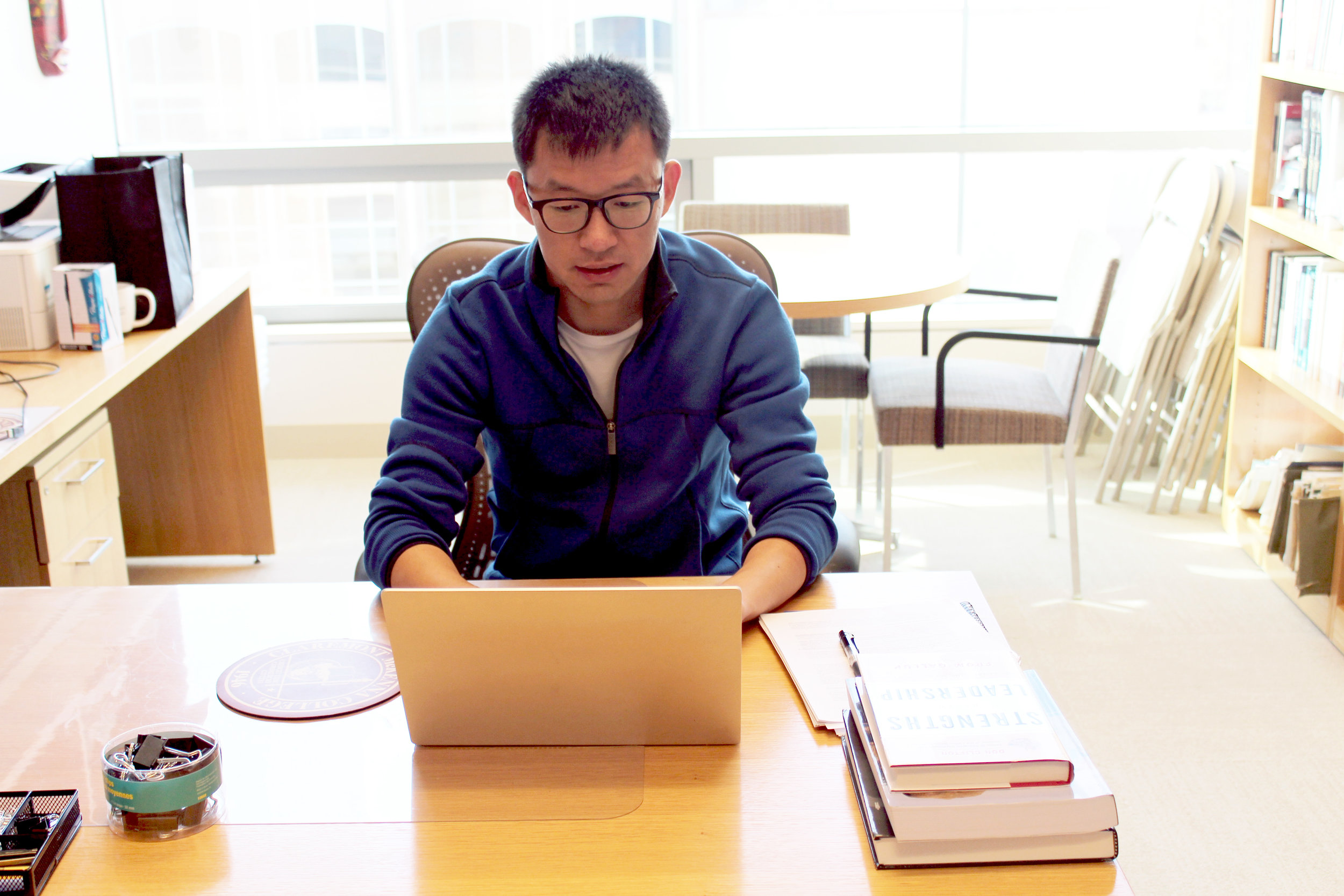
By Linnea Uyeno ’20
Marko Liu wants to change China with his leadership research. He recently joined the Kravis Leadership Institute as a visiting scholar from Beijing, China for the next 19 months. So why exactly did Liu trade the bustling streets of Beijing for the quaint roads of Claremont, California?
Liu’s journey to Claremont started in 2010 when he was working in a human resources consulting firm in Beijing. While at his time as a Talent development consultant, Liu found a hole in the leadership development field. One day he was providing executive feedback to a CEO, and the CEO said that although his advice on leadership was valuable, it had come too late for individuals at his age (45 years old). At that point, Liu started to think about the importance of earlier development in leadership.
“I kept thinking about what he said. Leadership development may be a lifespan process. I [searched for] research on this topic. I found that there were few researchers with developmental psychology perspective on this topic,” Liu said.
What Liu stumbled across was a 2011 issue in the Leadership Quarterly Journal, focusing on the longitudinal studies of leadership development, written by prominent leadership scholars, Professor Ronald Riggio, Allen Gottfried and David Day etc. The Fullerton Study program that began in 1979 with 130 one-year-olds and their families confirmed Liu’s suspicions.
“In 2014, I decided to quit my HR job and transfer my career to academic research on this topic. I applied for a PhD and went back to the Beijing Normal University to focus on the combination of developmental psychology and leadership”
As Liu dug deeper, he realized that there were only a few research studies connecting early family environment to future leadership potential. Academics have not even differentiated how they define and measure leadership in earlier developmental stages differently from in adulthood.
“This topic needs to be explored continuously. I am planning to do some research to clarify the measurement, influential factors (parenting behavior etc.), and intervene strategies for the youth,” Liu said.
Liu hopes to bring leadership development research and practices back to China.
“In the U.S., from early childhood, parents, teachers, and society emphasize leadership. They try to improve kid’s self-identity as a leader, in order to help them to learn how to lead themselves, influence others and even change the world. In China, the current emphasis is on academic achievement. Leadership in China is still an emerging topic. However, in recent years, modern parents and teachers are starting to realize the importance of leadership development for the youth.”
As the need for more leadership development services grows, Liu hopes to spearhead the movement with the groundbreaking research he is doing at Kravis Leadership Institute.
“I have a dream to start up some programs in China to put my research into practice. I want to coach and guide Chinese parents and teachers to develop and cultivate youth leadership [skills] scientifically. There is a growing need for it in China.”
Liu believes his leadership programs could shape society through business. One day Liu hopes to have the bigger impact on society by developing the Chinese leadership cultivation products around his research.
“If a business could do this kind of thing, I think it would be a great help for society through the development of the next generation. Later on, I want to start some programs to influence the government and the education system, so that they do some leadership curriculum in schools. My graduate advisor in China is a consultant for the Chinese education department. I can probably influence the government to do some leadership programs all over the country. Once I do this, I will feel a great sense of achievement and value,” said Liu.

